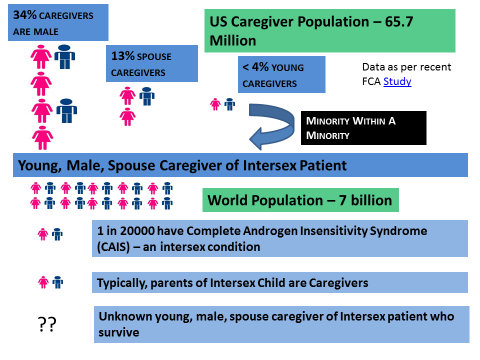 It’s a very simple goal : Health Care Providers need to change the messaging to caregivers from
It’s a very simple goal : Health Care Providers need to change the messaging to caregivers from
“It’s not your business to be here between me and my patient”
to
“I am sorry, even though your loved one, the patient, has requested for your presence as a caregiver, I respectfully decline and I suggest you contact this xyz counselor”.
Really, how hard is it? Would it better human lives? Would it provide better care for both the patient and the caregiver? Isn’t this really at the heart of any medical condition. It seems like it should be easy to get this change made in a civilized society. But it is NOT. It is far more difficult to practice than preach. We will probably write annals and volumes of text on this to debate the pros and cons (are there any?) just to have a few words change. And we thought devoting our life to caregiving was tough, huh?
We are very grateful to good medicine and the good health care provider who help save lives of our loved ones. It’s through their education and dedication we are able to enjoy a better living. However, is the medicine ALL-encompassing? Does patient care end at the hospital/medical office door?
Change does not occur overnight and it starts with a modest beginning. The messaging should be changed because it is the right thing to do for the caregiver and the patient and for their loving relationship. If you agree, please help me.
1) Competition – The health care provider provides care to the patient. The caregiver provides care to the patient. Do the health care providers feel threatened by competition from the caregiver? Is that the underlying reason for not changing the messaging and thinking about the caregiver?
2) Love – The health care provider cares for the patient because they get paid to do so. The caregiver provides care for a loved one and is voluntary. Caregiver shares a special bond with the patient that the health care provider will never have. Is their jealousy? Is that the underlying reason for not changing the messaging and thinking about the caregiver?
3) Medical Oath – Most health care providers have to take the medical oath and have fiduciary responsibility to the patients. What about the caregivers? By neglecting the caregiver needs of today, are they creating new patients of tomorrow? Is that the underlying reason for not changing the messaging and thinking about the caregiver?
4) Specialization – Thanks to the varied specializations in medicine, it helps save lives of our loved ones. However, the specialists took a medical oath to serve ALL patients. The specialists are far better qualified to make a recommendation to the caregiver for support than the unknowing caregiver. Using statements as “that’s not my area” is a cop-out. How are they helping better human lives? All they have to do is point in the right direction.
5) Authority – Good health care providers deserve all the respect. After all, they save human lives and that too of our loved ones. But they should be stopped from being authoritarian as if they are the only ones who know best. They do not know the circumstances between a caregiver and a patient. It is best to treat the patient with their specialized skills and direct the caregiver to their needs for support. Both are medical issues.
6) Doctor-Patient Privilege – While this should be respected at all times, what do you do when it becomes criminal? Trampling on caregiver rights for the sake of getting a patient better is not good health care in the long-term. Also, is this what a patient wants for their loved one, a caregiver? Are the patients wishes respected by the health care provider?
Change does not occur overnight.
This is a first in a series of several volumes of text to be written to make a simple change in the messaging by health care providers. Please do offer your feedback and come back to check for updates. I sincerely do wish that someone is listening and they can make these minor changes to the messaging. Both the health care provider and the caregiver have a common goal – better life for the patient and the loved one. I do not understand why they cannot agree on this simple messaging change.





 Facebook
Facebook GooglePlus
GooglePlus RSS
RSS Twitter
Twitter